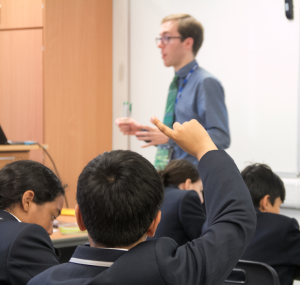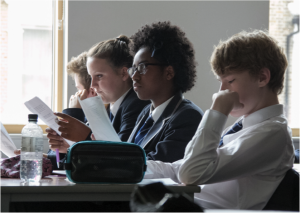‘Boys on Track’: Improving support for white FSM-eligible and black Caribbean boys in London
Today LKMco and the Greater London Authority (GLA) launch ‘Boys on Track’, new research looking at how support for white free school meal-eligible and black Caribbean boys across London can be improved.

The GLA commissioned this research because attainment among London’s most disadvantaged young people lags an average of 12 months behind their more advantaged peers, having an adverse effect on these young Londoners’ life chances. Two of the largest groups at risk of educational underperformance in London are black Caribbean and free school meal-eligible white boys.
Seven key areas for action
LKMco’s new research draws on extensive literature reviews, as well as a consultation with practitioners, experts and young people. The stakeholders we spoke to, and the existing research evidence we reviewed, emphasised the need for support across a range of areas, including academic progress, social and emotional wellbeing, and careers education and guidance. Particularly in the London context, where nearly all schools are good or outstanding, stakeholders identified that the focus for action must move beyond classroom teaching alone.
It identifies seven key ‘areas for action’, which will help build on excellent work already taking place across the capital in early years settings, schools, post-16 provision, and youth settings.
These seven areas are:
- Enhancing pupils’ emotional wellbeing and mental health.
- Working with parents and families, involving them in their children’s education.
- Securing access to high quality early years provision.
- Raising teachers’ expectations and addressing their biases.
- Recruiting and retaining a more diverse teaching workforce.
- Enhancing access to work experience opportunities, careers guidance, and support into employment.
- Encouraging peer support among young people.
The seven areas are not ordered by their importance; they are interlinked, and work on one is likely to benefit the others. Furthermore, approaches that would support outcomes among black Caribbean and white free school meal-eligible boys will be beneficial for all children and young people in London.
Taking action across these seven areas will involve a mix of agencies including the GLA, frontline practitioners, early years and education settings, youth agencies, and employers as well as local authorities and health professionals, other professionals and parents.
While all seven areas are important, many of the experts and practitioners we spoke to – and young people themselves – identified mental health and wellbeing as a key priority.

The research makes clear that while black Caribbean and free school meal-eligible boys are part of cohorts that underachieve on average, the boys are first and foremost individuals and their needs should be addressed accordingly. While there is often overlap in the challenges facing these boys, we cannot assume the challenges affecting black Caribbean and white free school meal-eligible boys in London are the same.
Sharing knowledge and providing training to ensure practitioners in early years settings, schools, post-16 provision and youth organisations feel confident building constructive relationships with parents and wider communities could help improve outcomes for the boys. Expanding access to quality early years provision should also be priority.
Talking about the research, London’s Deputy Mayor for education and childcare, Joanne McCartney, said:
”These findings show the importance of schools, youth workers and mental health services working together to ensure we give all children the best possible start in life. The study shines a light on the need for help and support earlier in a child’s journey through early years and school. We will use these findings to work with schools and other front-line services so that they can help all young people in the capital reach their full potential.”

